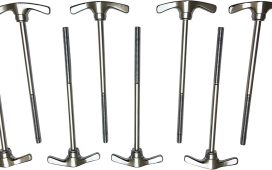Every working adult aspires to become financially stable. But it seems like the older you get, the more things you need to pay for. There are bills, mortgages, loans, insurances, and many other things you need to work into your monthly budget.
With so many things to be responsible for, it feels impossible to find a comfortable amount in your life savings at any point. This doesn’t have to be your fate.
While tightening your belt seems to offer marginal returns in this day and age, cutting costs in the right areas and making the proper investments can lead you to a life of financial freedom in the future.
Cut Down on Expenses Where You Can
Reducing your monthly expenses may not feel like they amount to much, but it really boils down to the saving choices you make. Here are some smart ways to decrease your overhead expenses.
1. Dial back on your regular payments.
Review what payments you make in a month. Which of these takes up most of your spending budget? Are there any that you don’t really need or can downgrade on?
A usual area where a person spends a lot of money is mortgage payments. If you feel like you are tied to your current mortgage rates forever, then you are mistaken. Shop for the most fitting refinancing rates for your current financial situation, and you might find one that gives you a lower interest rate.
Look at your subscriptions for Wi-Fi and mobile services, even those for streaming sites, news, and others. You might be subscribed to a too expensive plan for your current usage, so cut back where appropriate.
2. Make your own meals.
You might be surprised at how much your eating habits can cost you. Are you fond of eating in restaurants or having food delivered? Doing this regularly can amount to a hefty tab.
Instead of spending so much on what you eat, why not hone your cooking skills and make your own meals? Making your meals spares you from delivery fees and fuel expenses that come with getting food from outside. It also gives you peace of mind that your food is clean and sanitary, especially during COVID-19.
Go further than just what you eat, too. Learn to brew your own coffee and even make your own desserts! It helps to check which kind of food you are inclined to spend on then try to make it yourself.
3. Take advantage of discounts and loyalty programs.
Do you tend to shop just whenever you feel like it? Time to step out of those habits and make shopping a strategic activity by joining loyalty programs in your frequented stores. These could be your local grocery store, your favorite clothing line, and the restaurants and food shops you often buy from.
Becoming a member usually qualifies you for various member-only discounts, sales, and monthly coupons. You should also make an effort to search for discounts through various websites that curate offers or provide exclusive vouchers.
One more tip: shop off-season. Don’t buy swimsuits in the summer and coats in the winter. Instead, buy seasonal items during end-of-season sales to catch great markdowns.
Make Smart Investments
Minimizing your overhead expenses is important, but a long-term view of saving should involve investments.
1. Invest in real estate.
Real estate is a popular choice of investment for good reason. Though it takes a significant sum to get started, it is a potentially lucrative investment that can earn you passive income. You can use leverage in the initial parts of your investment, then pay off your balance as you earn.
As a rental property landlord, you can earn a steady income from tenants who rent your place. Just make sure to keep the place occupied or have multiple properties rented out, as vacancies will put a pause in your income from the property.
2. Keep a high-yield savings account.
A high-yield savings account is also a smart way to make sure your money grows in the bank. These accounts have interest rates that can be 20 times higher than the usual rates banks offer. Weigh your options, though, to check if you are getting the best deals on interest, deposit requirements, and fees.
Keep Track of Your Money
An easy way to lose money is to be unaware of your finances’ actual inflow and outflow. Save money by recording your income and expenses through a budget tracker. This assures you that your money is accounted for and lets you quickly respond should suspicious activity occur.






